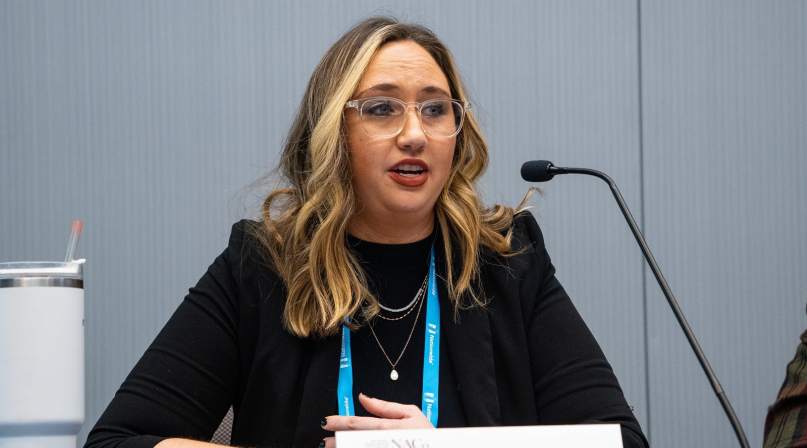Counties weigh strategies for allocating opioid settlements

Key Takeaways
With national opioid settlements beginning to roll in, county officials are tasked with determining how best to spend the funds.
Lauren Carr, executive director of the Graves County, Ky. Agency for Substance Abuse Prevention, advocated for needle exchange programs, community distribution of the opioid overdose treatment Naloxone, quick response teams in the event of overdoses and investing in peer support.
Learn more
NACo 2023 Legislative Conference coverage
Rural counties miss all shots they don’t take for substance abuse help
“Individuals in active addiction are going to use, regardless of if they have a clean syringe or not — I’ve never met somebody to walk in my doors and say, ‘You know what? I've never shot up, I think I want to shoot up today,’ but what I have seen is individuals use the same syringe for two weeks and have abscesses or potentially get a staph infection from using unsterile equipment,” Carr said.
“So, not only are we meeting individuals where they are, but we’re providing them those key services and education, not only to keep themselves healthy, but keep them alive as well … dead people don’t recover, so we have to keep people alive, however that is.”
Nick Szubiak, integrated health consultant and principal for NSI Strategies, said that a misconception he often hears is that harm reduction takes the place of programming that supports abstinence from drug use, when instead it’s a helpful alternative for people whom the “abstinence only” mindset doesn’t help.
“I love abstinence only programs, they’re fantastic and they help many people, but they don’t help everyone, so we need those programs and all this other stuff that we’re talking about,” Szubiak said. “We’re not getting rid of anything with harm reduction, it’s about adding in these other doorways and pathways that folks may not have access to.”
Gregory Branch, director and health officer for Baltimore County Department of Health and Human Services, said it’s essential to destigmatize substance use disorder and to begin examining it through a public health lens instead of a critical one by investing funding in mental health, expanding access to methadone — which is used to treat opioid use — and creating treatment programs in all communities.
“What happens is that everyone always says we need to help communities, that’s really important, but if I try and open a program, you’re not going to let me because it’s ‘Not in my backyard,’” Branch said.
“It’s always, ‘It’s a shame people are out there like that, it doesn’t make any sense, they need to get care.’ OK, well put [treatment] in your neighborhood and it’s ‘no’— yet that person is still in your neighborhood, taking drugs in your neighborhood. Yet, when I want to bring in services right where they are, it’s ‘not here.’”
Branch said that, while counties across the country are at varying levels of progress when it comes to the opioid epidemic — with some pushing for safe injection sites while others don’t have access to needle exchange programs — it’s important to move forward, however that looks for each county.
“Everybody’s at a different place, and all we can actually do is, when your jurisdiction is ready to do it, go ahead and do it,” Branch said.
Attachments
Related News

USDA and HHS release new dietary guidelines
On January 7, U.S. Department of Agriculture Secretary Brooke Rollins and U.S. Department of Health and Human Services Secretary Robert F. Kennedy, Jr. unveiled the new Dietary Guidelines for Americans, 2025–2030.

County Countdown – Dec. 15, 2025
Every other week, NACo's County Countdown reviews top federal policy advocacy items with an eye towards counties and the intergovernmental partnership.
